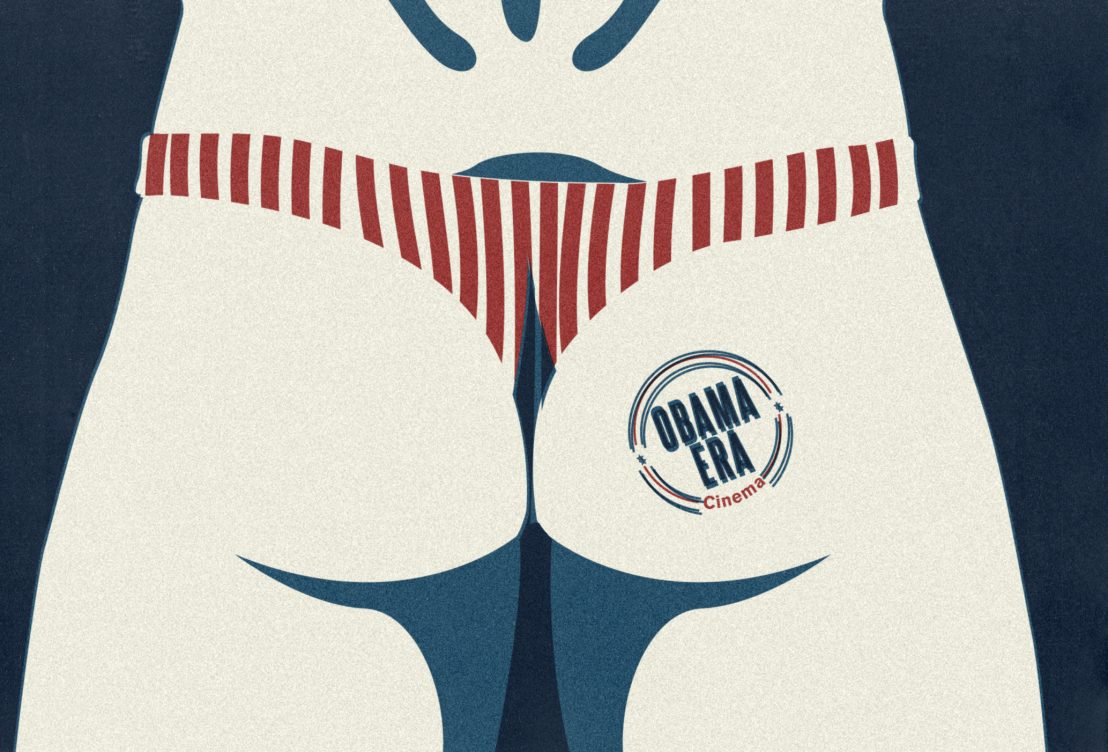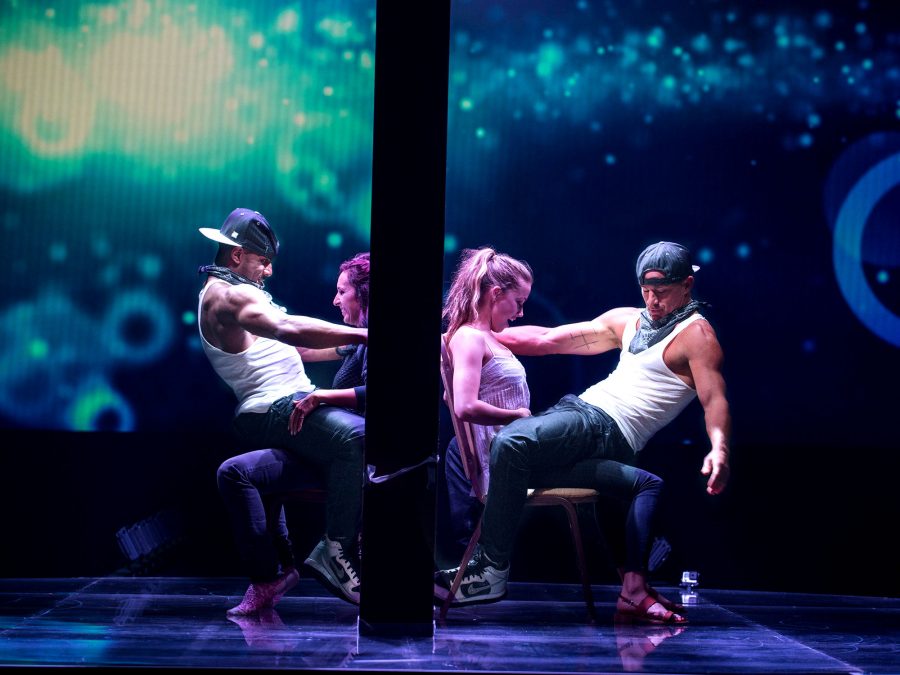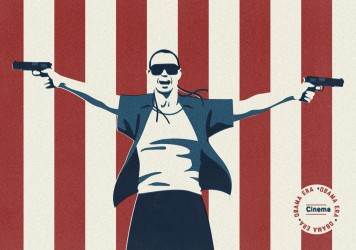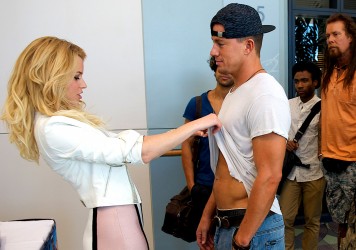
Simran Hans considers the link between two of America’s most prominent and progressive leading men.
Just as Reagan had Die Hard and Bush had The Dark Knight, so America’s 44th Commander in Chief, Barack Obama, will come to be associated with specific films from the last eight years. So what exactly is Obama Era Cinema, and what does it reveal about the world we live in today? Have your say @LWLies #ObamaEraCinema.
In January 2009, less than three months after Barack Obama had been elected as president of the United States, The New York Times ran an article about How The Movies Made a President. Critics AO Scott and Manohla Dargis wrote about the films that paved the way for America’s first black president, citing cinema’s “fantasies of black heroism” as giving “some sense of what the country hopes for in its [then] new leader”.
But Scott and Dargis were not to know that the pop culture reverberations of Obama’s tenancy would be as coloured by his celebrity – his sex appeal, really – as his blackness. In the same way that certain films “have helped write the prehistory of Obama’s presidency,” Obama himself has helped to redraw the template for what it means to be a leading man. Affable, charming, conventionally handsome (of course), but self-effacing, progressive, homosocial, even – qualities that Obama shares with the most important male movie star of the last eight years, Channing Tatum.
Flickers of Tatum’s particular brand of modern masculinity first appeared in two films from 2006, two whole years before Obama’s historic victory. In Step Up, Tatum plays a delinquent who can dance; while doing community service as a janitor in an arts school, a ballerina picks him as her partner. She teaches him about discipline, while he loosens her up. In She’s the Man, a teen movie adaptation of Shakespeare’s ‘The 12th Night’, Tatum is an adorable jock who becomes close with his roommate (Amanda Bynes in full drag, pretending to be her own twin brother). In both films, Tatum is characterised by a relaxed flirtatiousness and goofy, physical looseness that plays off his hard, sculpted body.
Six years later, these facets of his stardom would re-emerge in Steven Soderbergh’s Magic Mike, based on Tatum’s real-life experiences as a stripper in Tampa, Florida. In it, Tatum’s alter ego is a construction worker by day and exotic dancer by night, performing for quick cash that will one day enable him to start up his own custom furniture business. He’s a blue-collar craftsman – certainly no intellectual – but he’s never characterised as macho. He’s playful and tactile with his protégé, the Kid (Alex Pettyfer), unbothered by the dick-swinging naked bodies behind the stage curtains. He shows up at the Kid’s house dressed as Marilyn Monroe (an explanation is neither demanded nor offered).
The second instalment of the Magic Mike franchise, released in 2015, increases the soft masculine energy present in the original. Three minutes into Magic Mike XXL, ‘Big Dick Richie’ (Joe Manganiello) – naked, naturally – grabs Mike in a brotherly embrace and jumps into the pool with him. They tell each other how much they love and miss each other (“There’s a giant hole inside of me that was created when you left, and now I feel like it’s full again,” says Richie of Mike’s absence), all the while cavorting about in the back of Tito’s (Adam Rodriguez) fro-yo truck.
At the 2015 edition of the annual White House Correspondents’ Dinner, Obama spoke fondly of his Vice President and long-term friend Joe Biden. “I feel more loose and relaxed than ever… Those Joe Biden shoulder massages, they’re like magic!” he joked, telling the room that the pair had “gotten so close, there’s places in Indiana that won’t serve us pizza anymore.” Biden tweeted a photo of the friendship bracelet he’d gifted Obama on his 55th birthday, captioning it “a best friend forever”. At the end of a montage in Magic Mike XXL, in which Mike and his fellow entertainers set about choreographing their final performance, Mike and Tito flop face-down onto a double bed, exhausted. The implication that these two grown men will share a bed is not dwelled upon.

In David Marniss’ biography, ‘Barack Obama: The Story’, he shares a love letter from one of Obama’s old girlfriends, which picks out how his “warmth” was at odds with his “coolness” and “sharp edges”. Indeed, Obama’s Harvard education and cold intellectualism are absent from Tatum’s star persona (David Oyelowo’s smart, stoic black masculinity might be a closer match). Of course, Tatum’s on-screen configuration of manhood isn’t based on Obama himself, but rather the kind of leading man permitted to exist in Obama’s America. A leading man who is masculine without being aggressive; emotional but not weak; fun-loving, hard-working, and respectful towards women.
In XXL’s showstopping finale, each dancer performs a short, themed solo. In Magic Mike, their costumes are rooted in rigid and traditional masculinity (army officer; fireman; Tarzan; Ken Doll). In XXL, these out-dated models of maleness are swapped out for feminised roles (painter; groom; ice cream connoisseur…). Their set pieces take place in imagined domestic spaces, their routines engineered to maximise female pleasure. But it’s not entirely strategic. Tito “never wanted to be in the navy” or to “do this Top Gun shit”. Richie has a fear of fire.
In his essay on feminism for Glamour magazine, Obama wrote: “It’s easy to absorb all kinds of messages from society about masculinity and come to believe there’s a right or wrong way to be a man. But as I got older, I realised my ideas about being a tough guy or a cool guy just weren’t me.” The guys in XXL aren’t tough or cool either; Ken (Matt Bomer) laments having to fight with his fists (“No, it’s not fuckin’ awesome, there are a lot better ways to handle that shit!”), Tito dreams of running a fro-yo truck and Ritchie performs a routine to a Backstreet Boys song. Theirs is a version of masculinity that recognises female power and accommodates it. In Rome’s (Jada Pinkett-Smith) private member’s club/mansion, black women are queens, catered to. First Lady Michelle Obama is a queen, too.
The dance sequences in both Magic Mike films show bodies in bits, chopped up by the camera and frenetically edited so that the focus is never on the routines, but rather on the composite parts of the men performing them. The orgasmic potential of the abs and asses, of the lifts, flips and gyrations is privileged over the audience’s ability to actually appreciate the athleticism of the routines – or even see them properly. These scenes are orchestrated for the benefit of (straight) female viewers and successfully so, but there’s something of a sleight of hand taking place.
There is the sense that when coupled with his celebrity, Obama’s leftist stance on social issues offers a distraction from certain unsavoury policy decisions. Yet from his early endorsement of gay marriage to the rise of fourth-wave feminism under his administration, the consequences of Obama’s progressive sexual politics seem to be where his legacy will lie. With it, hopefully, the slow dissolution of toxic masculinity – and the rise of more stars like Tatum.
Published 6 Nov 2016

How might President Barack Obama’s famous speech have looked had it been co-written by a certain James Franco?

Channing Tatum and co’s triumphant return is an endorsement for sexual empowerment, not exploitation.

In our latest Obama Era Cinema essay, Stephen Winter considers the impact of two controversial role reversal fantasies.